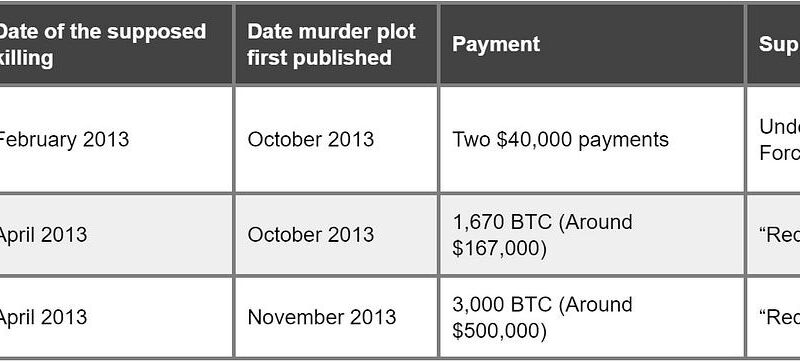Chapter 9 of the book Reckless: The Story Of Cryptocurrency Interest Rates is published below. The full book is available on Amazon. The book was written before the bankruptcy of FTX and therefore does not include coverage of this event. However, the book does provide useful commentary in the run up to the failure of FTX, which provides context for the eventual calamity.

Towards the end of 2017, the idea of using Bitcoin as collateral to borrow US Dollars gained some traction. The rationale for this was that many people had become wealthy due to Bitcoin price appreciation and they may want to use that wealth to buy goods and services, for example a home, a car or a yacht. These individuals may want to retain their Bitcoin holdings and therefore they can use the Bitcoin as collateral to borrow US Dollars and avoid selling Bitcoin. This meant the lender didn’t need to do any credit checks as they had a highly liquid form of collateral instead, Bitcoin, which was posted with the lender. The borrower also had the advantage of not realising a capital gain by selling the Bitcoin, therefore they may have avoided or deferred taxation.
This type of structure is similar to the services investment banks provide some wealthy clients. For instance, a successful founder of a company may want to purchase a luxury home, something they can afford due to the success of their startup. However, they may not want to sell shares in their company, because they want to retain control, retain the economic upside and avoid capital gains tax. Therefore, they could place the shares of their company as collateral with the private wealth division of a large investment bank such as UBS or Morgan Stanley. The investment bank will then provide the company founder with the liquidity they need to purchase anything they want, whenever they need it. This service is very common in traditional investment banking and people began to see that there was some merit in applying it to Bitcoin and cryptocurrency. Several companies were founded based on this idea.
BlockFi is a New York based firm, founded in 2017, which provided cryptocurrency backed loans. BlockFi is believed to be the first company to provide such loans as a business, where the funds were supposed to be withdrawn from the platform. The first loan was provided in January 2018, where BlockFi lent out fiat money, while cryptocurrency was provided as collateral. Customers could deposit Bitcoin, use it as collateral and then borrow US Dollars. The US Dollars were paid to clients via a wire transfer. In February 2018, the loans would work as follows:
- The customer deposits Bitcoin or Ethereum with BlockFi.
- The customer can borrow US Dollars, paying an annual interest rate of 12%.
- An origination fee of 1%.
- The loan could be up to 40% of the value of Bitcoin deposited or in the case of Ethereum, only 35%, due to the higher volatility of Ethereum. This is called an initial margin.
- If the cryptocurrency price fell, such that the loan to value ratio increased to 70% and the client did not add more equity to the position, the client could get liquidated. This is the maintenance margin.
As for the Bitcoin and Ethereum BlockFi received, it was initially just stored in company wallets. The funds were not lent out or rehypothecated. They were just stored safely, ready to pay back the customers should they repay the loans and withdraw. The 12% interest rate was high enough and BlockFi did not need to earn more money by lending out the Bitcoin. On the other hand, BlockFi was very much growth focused, it had the culture of a VC backed American technology startup, rather than one focused on what some consider as “Bitcoin principles” of security, resilience and protection in a financial crisis.
Ledn
The next crypto currency collateralised lending platform to launch was Ledn, in Toronto Canada, which was founded in August 2018. This was essentially the Canadian equivalent of BlockFi. In February 2019, Ledn charged a rate of 12% to borrow Canadian dollars, a rate identical to BlockFi in the United States.
Initially, just like at BlockFi, the company did nothing with the Bitcoin deposited by the clients. The users could see the unmoved transaction outputs on the Bitcoin blockchain, such that they knew the Bitcoin was safely sitting there. In contrast to BlockFi’s growth culture, Ledn seemed a bit more in tune to the aforementioned so-called Bitcoin values.
Unchained Capital
Unchained Capital is another company which offers US Dollar loans based on Bitcoin collateral. The company was founded in 2016 and exclusively provides Bitcoin related services, such as facilitating Bitcoin purchases and storing Bitcoin in a multi-signature wallet on behalf of their customers. The company also provides US Dollar loans with Bitcoin as collateral.
Unchained Capital was and still is, the most conservative of the three lenders. The company has never and still does not, loan out or otherwise rehypothecate customer Bitcoin. The customer Bitcoin is always stored inside the company’s multi-signature wallet system. The company still provides this lending service today, charging an interest rate of between 12% to 16% on US Dollar loans, with an origination fee of 1%.
Related
The post appeared first on Blog BitMex






